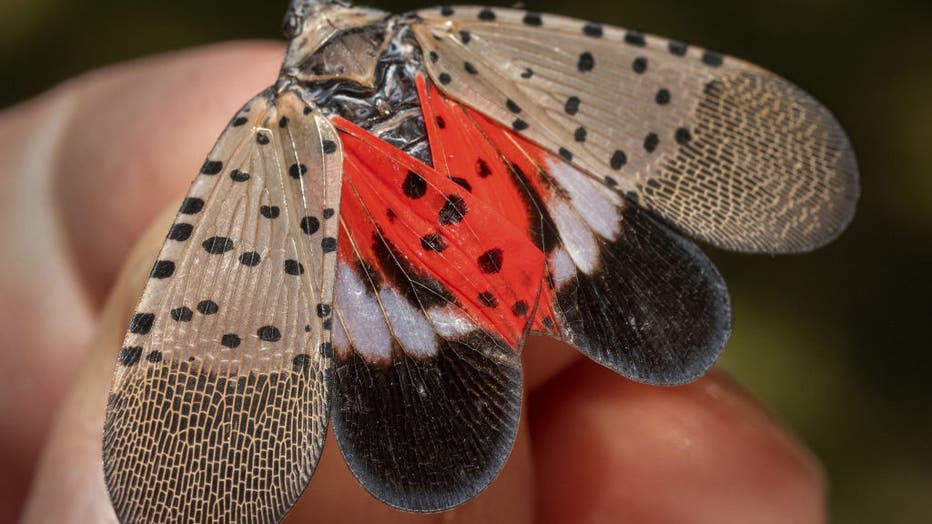Spotted lanternflies return: What you need to know about this summer's invasion
Spotted lanternflies return to NY
They're baaaaaaack! Spotted Lanternflies have once again returned to the region for the summer, and experts say that unfortunately, this is the new normal. FOX 5 NY's Jodi Goldberg looks at just how widespread the pests are, and what kind of damage they're causing.
NEW YORK - They're baaaaaaack! Spotted Lanternflies have once again returned to the region for the summer, and experts say that, unfortunately, this is the new normal.
"It’s just going keep working its way out," arborist Evan Dackow with Jolly Green Tree and Shrub Care said. "Every year is going to get worse for the next couple of years."
Right now, the invasive insects are in their late nymph stage, characterized by a red body with white spots and black legs. Over the next few weeks, they’ll take flight towards Long Island.
While the spotted lanternfly is said to be harmless to humans, there’s growing concern about crops on the east end and what the pierce-sucking pests can do to the fruit trees and grape vines.

FILE - Indiana Department of Natural Resources compliance officer Vince Burkle holds an adult spotted lanternfly found in Huntington, Indiana, on Wednesday, Aug. 17, 2022.
"It can damage them substantially and drop their fruit production," Dackow said.
The spotted lanternfly was reported last summer in the Ronkonkoma area, but this year experts have already gotten calls for sightings 20 miles further in the Riverhead area.
"The tree of Heaven is their host tree, and it's everywhere you'll find it along the expressway, along the train tracks, in any disturbed soil," horticulture consultant Sandra Vultaggio with Cornell Cooperation Extension of Suffolk County said.
Cornell Cooperative Extension receives 5 to 10 calls a day about the lanternfly. Experts say there’s no need to report sightings as they can lay anywhere from 30 to 100 eggs.
"We’ll probably hear about spotted lanternfly until we get the first frost and then the adults will be gone, and it'll be a matter of looking for egg cases that they left behind," Vultaggio said.
Over time, the hope is for natural enemies to feast on the bothersome bugs in order to stop the spread.
Until then, you can spray to kill them or swat, squash, and stomp if you see one.


